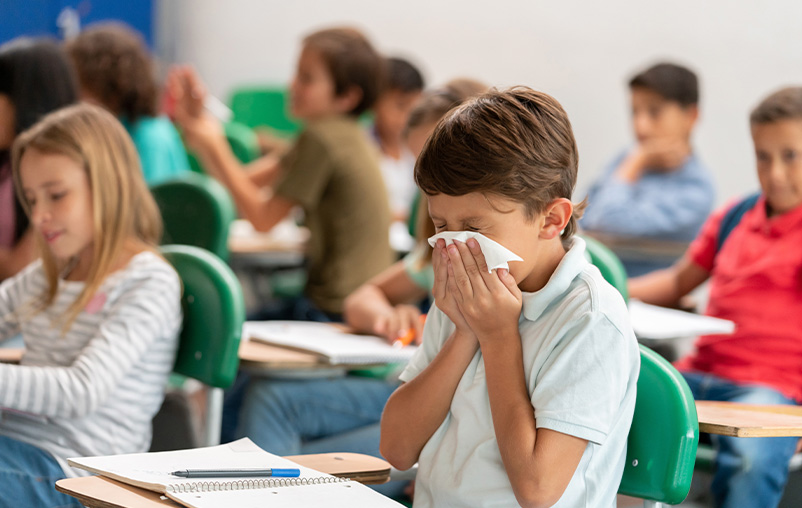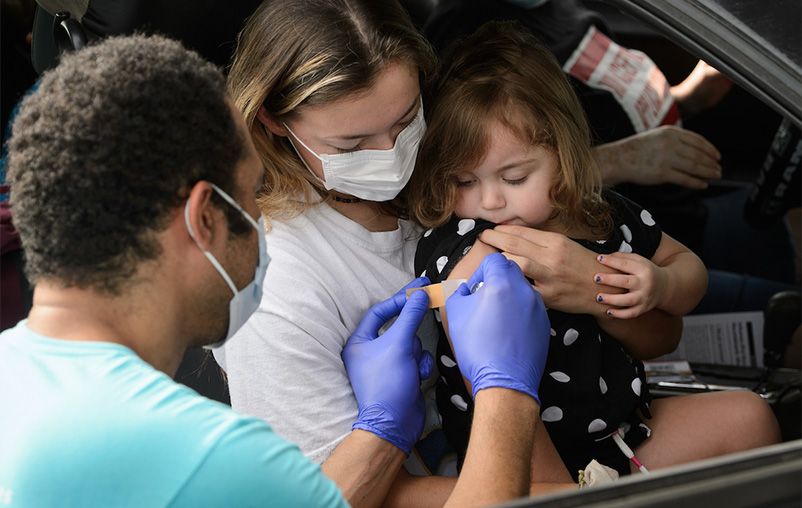Long before community spread of COVID-19 began in San Antonio, University Health put a plan in place to be prepared for the impact of the virus on our community. Our attention to the crisis as early as January allowed us to navigate and lead through this difficult time.
From keeping our staff informed on a daily basis to creating new processes and providing critical, timely information to our community, University Health has been here for you throughout the COVID-19 crisis. And through our partnership with UT Health San Antonio, we’re researching and testing new ways to fight this virus now and into the future.
Here are some highlights demonstrating our readiness:
Planning ahead to keep you safe
Surge preparedness
University Health erected two large tents outside the University Hospital emergency department as a triage site for quickly identifying patients who may be infected with the virus. University Hospital medical teams have rehearsed their response to a potential flood of COVID-19 patients checking in at the emergency department so that we’re ready when you need care.
Visitation guidelines & clinic changes
New patient and visitor screening guidelines are in effect at all University Health locations. Only visitors without symptoms and without exposure or travel history are allowed to enter our facilities-some of which have reduced hours or have transitioned to telephone appointments. We made these decisions to streamline operations, preserve resources and minimize risk to our patients, staff and members of our community.
Internal communications
Throughout the pandemic (and for weeks before cases were identified in San Antonio) we’ve been in daily contact with more than 9,000 employees. These updates include the latest developments in operations, testing, care guidelines and the availability of supplies. Keeping our hard-working staff informed of every critical update translates to safer and more effective care for our community.
Telehealth
Many of our appointments have moved to telemedicine visits, which include phone and video meetings with your doctor or provider. These appointments ensure that you continue to receive the care you need while, at the same time, protecting others from the threat of infection.
Inventing protective solutions
Extending the life of N95 masks
N95 face masks are considered the gold standard for protecting medical staff caring for patients who may spread COVID-19. Predicting a shortage of personal protective equipment, our staff invented a method to sterilize N95 masks so that they can be worn more than once. The U.S. Food and Drug Administration has granted approval for University Health System to use a hydrogen peroxide gas process to sterilize N95 masks. Since suppliers have been unable to keep up with hospital demands for N95 masks throughout the country, this method ensures our staff will remain protected.
Developing a more effective mask
University Health’s Chief Nurse Executive Tommye Austin led a team to develop a new type of mask made of materials that can be sourced locally. The mask underwent rigorous testing at the Southwest Research Institute, who found it to be effective in protecting against the fine particles and droplets that spread COVID-19.
On-site testing
Before reporting began on the limited availability of COVID-19 testing, University Health’s laboratory staff established in-house testing at University Hospital. This means that patients suspected of contracting COVID can have their samples tested at our hospital, and in many cases, have their results delivered more quickly than if they were tested elsewhere. Our lab is currently awaiting the delivery of new equipment that will allow the processing of COVID tests in as little as two hours.
Discovering new treatments
Power plasma study
We’re proud to be working closely with the South Texas Blood and Tissue Center on a treatment study using donated plasma from people who have recovered from COVID-19. “We have begun transfusing hospitalized COVID-19-positive patients with the plasma,” said Dr. Leslie Greebon, University Health’s medical director of transfusion services. “It’s too early to say how well it is working,” Dr. Greebon said, “but there have been no adverse events so far.”
Remdesivir clinical trial
Physicians at University Health are among the first in the country to help test a drug that may prove effective in treating COVID-19.
The drug, Remdesivir, is an experimental, antiviral therapy that may prevent the virus from reproducing in the body. The drug has been tested in people with Ebola. It’s also been tested on animals with Middle Eastern respiratory syndrome and severe acute respiratory syndrome - which are caused by other coronaviruses.
University Health is here for you
The world has changed, but University Health’s commitment to your health and well-being has not. We will continue to innovate and work with our partners at UT Health San Antonio to ensure that our community has access to the best technology, tools and medical care in the fight against COVID-19.




